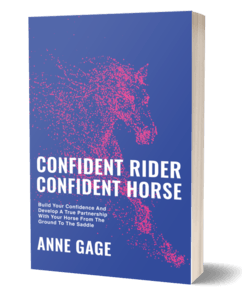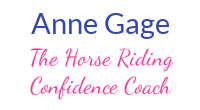Recently, a woman contacted me about her son’s 5 year old, quarter horse mare. She is sweet and well behaved on the ground. But, she won’t go forward when she is being ridden.
Their coach insists that the mare is just being stubborn and lazy and the son must ‘push her’ until she gives in.
When he ‘gets after’ the mare, she pops up her front end threatening to rear. The woman is concerned that the more the mare is pushed, the more her behaviour is escalating.
She can see her son’s confidence eroding and she is concerned that he will be hurt.
If your horse won’t do what you want or behaves badly, do you just ‘push through it’?
You've probably heard someone say (or maybe you have said it yourself) ‘he’s being stubborn, lazy, naughty, disrespectful or rude’?
Or maybe, in those situations, you have thought that your horse ‘just doesn’t like’ you, ‘refuses to listen’ to you or is even ‘out to get’ you.
When a horse refuses or is resistant to doing something we ask of her – even if it is ‘not liking’ a particular lead, refusing a jump or to go along a trail, or not loading on the trailer – it is common for people to blame the horse (as this woman’s coach has done).
Placing the fault on the horse, makes you feel that the situation is out of your control.
You react from an emotional place becoming frustrated, angry or scared and are not able to step back to and take a clear look at the bigger picture.
When I was much younger, I was an emotional rider. I had a temper. When my horse misbehaved, I would get angry and aggressive with her.
It was frustrating for me as well as for my poor horse. She never knew which rider she was getting – the happy, loving one who patted and praised her and gave her treats when she was ‘good’. Or the angry, frustrated one who shouted, kicked and pulled on her when she didn’t do as she was told.
What I didn’t realize at the time was that my emotional behaviour was causing more stress, resistance and confusion in my mare.
What she needed was for me to take a deep breath (or 10), slow down and figure out what was getting in the way. If she refused a fence, perhaps it was because I didn’t set up her for a straight approach, she was unbalanced or her hind quarters weren’t engaged.
If she missed a lead change, maybe my timing was off or I was crooked. If she ran off with me (she was a thoroughbred, after all), maybe her saddle was pinching, I gripped too hard with my legs or I was driving with my seat.
Instead of blaming your horse, consider these three things
We both would have been happier, and I would have got the results I wanted, if I had taken the time to figure out the source of the problem.
Now, when I am working with a horse that is not doing what I ask, I consider three things – how, what and why.
- How – Are you asking in a way that makes sense to your horse? Are your cues clear and consistent?
- What – Is there something physically or mentally getting in the horse’s way? Is he mentally and physically ready and able to do what is being asked of him? Do you have the skills to help your horse work through the situation or change the behaviour?
- Why – Why does your horse have this behaviour? Is there physical pain? Does your tack fit properly? Has he been properly trained for this activity? Does he or do you need more training?
An action plan for resolving the problem
So what can the woman with the quarter horse mare do?
First, she is going to become an advocate for her mare and have a talk with her coach about his approach.
Then, she is going to get the saddle fit checked by a professional saddle fitter.
She is also going to consider the possibility that her mare has ulcers (her behaviour as well as some other symptoms make this a possibility) and discuss options with her veterinarian.
No matter what level of rider you are or what type of riding you do – even if you are doing ground work -when you have a problem, don’t blame your horse.
Keep your emotions in check then look at the whole situation calmly so you can come up with a plan to help your horse. If you can’t control your emotions in the moment, do yourself and your horse a favour – walk away and come back later. When you are calm, review what happened and consider how, what and why.
When you avoid blame and look for possible causes, then you're taking responsibility and putting yourself back in control.
You’re also being a better and more considerate partner for your horse. Both of you will feel less frustration, fear or anxiety. Instead, you’ll build more trust, respect and confidence.
YOUR TURN: Has your horse ever refused to do something you asked? What did you think and do to work through the problem? Leave a comment below.
FREE DOWNLOAD
Don't Let Anxiety Take The Fun Out Of Horse Riding
"Thank God for Anne's book and knowing exactly how it feels to have debilitating fear and how to overcome it."
This free (and downloadable) chapter gives you a sample of the proven and effective confidence building techniques I used to rebuild my own confidence.
Start using them right away to feel calmer about riding your horse.


